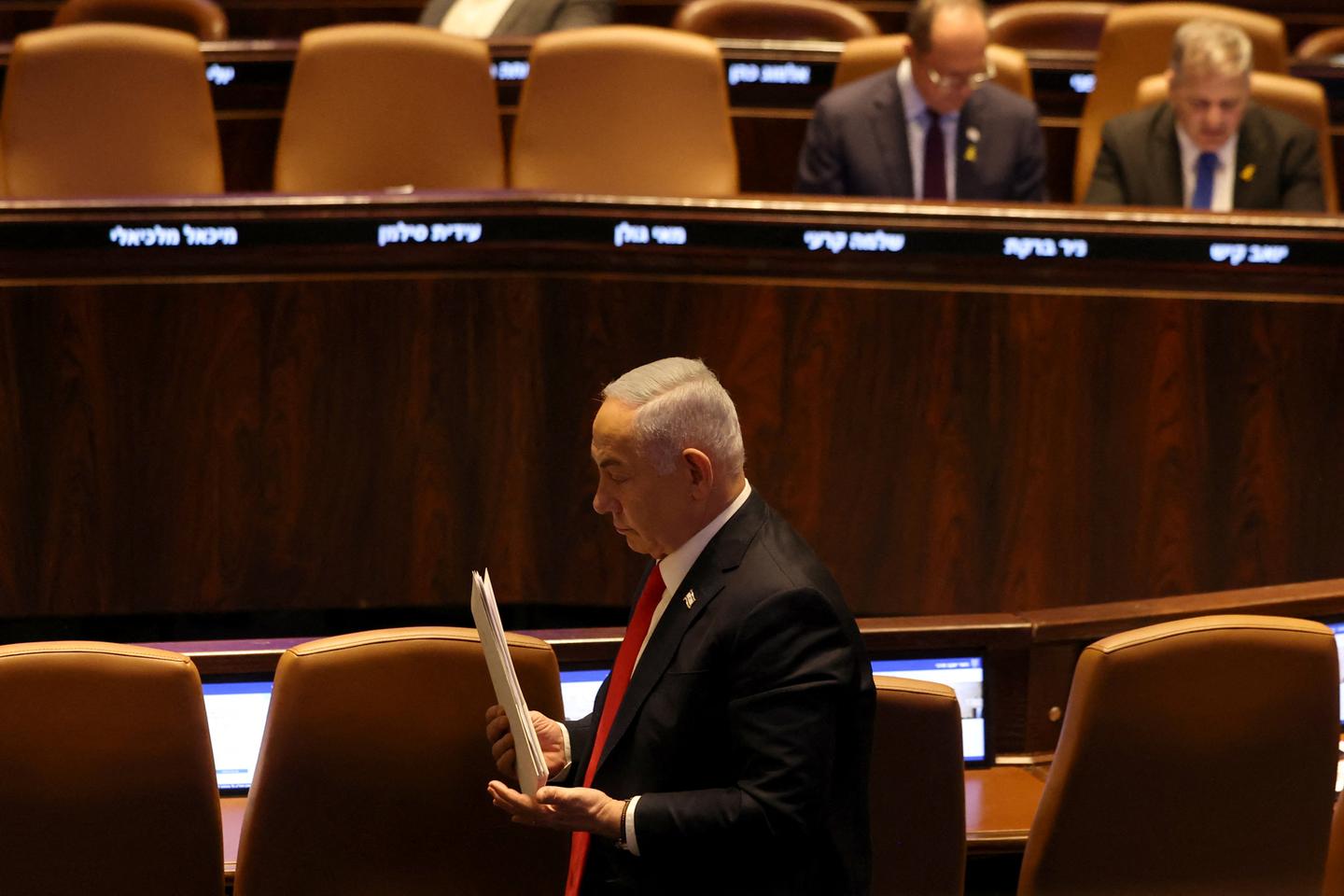Crimes against humanity and war crimes: These are the charges brought by the judges of the International Criminal Court (ICC) against Israeli Prime Minister Benjamin Netanyahu and his former defense minister Yoav Gallant, who was dismissed on November 5. On Thursday, November 21, the three judges issued the arrest warrants requested in May by prosecutor Karim Khan against the two Israeli officials. This is a first for the ICC against the leaders of a country in the Western camp.
The Israeli prime minister described the decision as “anti-Semitic,” calling it a new “Dreyfus trial.” Gallant, for his part, condemned a “dangerous precedent” that “encourages terrorism.” In Israel, a form of national unity was immediately formed around the two defendants. “This is a dark day for justice. A dark day for humanity,” wrote Israeli president Isaac Herzog on X, while opposition leader Yair Lapid felt that “these arrest warrants are a reward for terrorism.” Conversely, the Palestinian Authority saw it as a “sign of hope” and Hamas as an “important step towards justice.”
Netanyahu and Gallant are prosecuted as co-perpetrators of war crimes for the use of starvation as a method of combat, and co-perpetrators of crimes against humanity for murder, persecution and other inhumane acts. They are also suspected, as political leaders, of intentional attacks on the civilian population in Gaza. This is a reference to events that took place between October 8, 2023, the day after Hamas attacked southern Israel, and May 20, 2024, the date on which ICC Prosecutor Khan requested these arrest warrants after six months of investigations carried out as part of an inquiry opened in 2021 into alleged crimes by the Israel state in Israeli-occupied Palestinian territory (West Bank, Gaza Strip and East Jerusalem). The State of Palestine joined the International Criminal Court in 2015.
‘Violation of international humanitarian law’
According to the Preliminary Chamber, the facts concern “the activities of Israeli government bodies and the armed forces against the civilian population in Palestine, more specifically civilians in Gaza,” committed in the context of an international armed conflict, and “between an occupying power and the population in occupied territory.”
The three judges considered that there were “grounds to believe” that the two individuals had “intentionally and knowingly deprived the civilian population in Gaza of objects indispensable to their survival, including food, water, and medicine and medical supplies, as well as fuel and electricity.” They point to the role of Netanyahu and Gallant “in impeding humanitarian aid in violation of international humanitarian law and their failure to facilitate relief by all means at its disposal.” For the Pre-Trial Chamber, the two suspects increase or reduce humanitarian aid according to their own needs and often in “response to the pressure of the international community or requests by the United States of America.”
You have 65.35% of this article left to read. The rest is for subscribers only.

